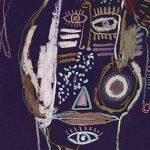Sadomasochism Contextualized
 Miami is a culturally dynamic city, and my institute is looking for ways to build bridges with analytic communities in Latin America. A recent clinical presentation at my small but growing institute, a conservative organization for many years, by a senior Latin American analyst who practices in the US, presented an interesting account of a partial analysis of an Asian student. The patient’s strong dependent yearnings were frustrated by her mother and by an older sister during childhood, and by her ex-husband in adulthood. As a child, however, her adolescent nanny indulged these yearnings, wiping her after bowel movements, for example. As an adult the patient developed psychosomatic colitis.
Miami is a culturally dynamic city, and my institute is looking for ways to build bridges with analytic communities in Latin America. A recent clinical presentation at my small but growing institute, a conservative organization for many years, by a senior Latin American analyst who practices in the US, presented an interesting account of a partial analysis of an Asian student. The patient’s strong dependent yearnings were frustrated by her mother and by an older sister during childhood, and by her ex-husband in adulthood. As a child, however, her adolescent nanny indulged these yearnings, wiping her after bowel movements, for example. As an adult the patient developed psychosomatic colitis.
As one of only two analysts in our group interested in self psychology, I am sometimes called on to teach a module to candidates on Kohut’s work. I encountered his ideas in graduate school and trained in Boston, where I encountered more analysts receptive to self psychology.
At this presentation, I thought to myself that a cogent self-psychological argument could be made to conceptualize the patient’s pathology: the presence of a narcissistic mother who felt ashamed of her, despite their country’s strong cultural acceptance of dependency feelings; the lack of a proud gleam in the parent’s eye; the patient’s sense of humiliation and rage over not being responded to empathically by her family; her compensatory sense of entitlement and self-indulgence via she nanny, etc.
The presenter reviewed the literature on dependency dynamics in the patient’s Asian culture. The rich discussion which ensued, however, did not go in a Winnicottian/dependency or a self-psychological direction, as it might have. Instead the patient’s sadomasochism and management of aggression was brought up, but not in the context of her mother’s possibly very real empathic failures. A distinguished senior analyst, a discussant, hypothesized that perverse dynamics had organized around the nanny’s daily bodily stimulation of the patient, and persisted into adulthood. But this analyst did not situate the psychosomatic colitis and possible perversion within the context of efforts to stimulate and revive a depleted self, as Kohut would have done.
Great points were made about the patient’s sadomasochistic torturing of her mother via her failures, and her sadistic lashing out at her husband. But no one addressed the issue of the state of the patient’s narcissism providing fertile ground for sadomasochism and perversion to flourish. The patient’s aggression, if not her conflicted and possibly perverse sexuality, were discussed as being generated intrapsychically, versus as the pathological response of a grandiose self to its frustrating selfobjects.
It was a rare treat to shear a senior analyst present her own clinical work. And she drew a very interesting parallel between the patient’s Asian culture denying its historical aggression towards other countries with the patient’s denial of her own aggression. But I wondered if explaining the patient’s aggression as extreme frustration over empathic ruptures with her selfobjects would be seen by our group as colluding with his denial. One historical criticism of self psychology has been that it whitewashes human aggression. The patient’s sense of entitlement and her desire to control the analyst was acknowledged, but these behaviors were not put into a self psychological framework that could have rendered the patient’s pathology more comprehensible. And possibly also have paved the way towards greater empathy with the patient.

